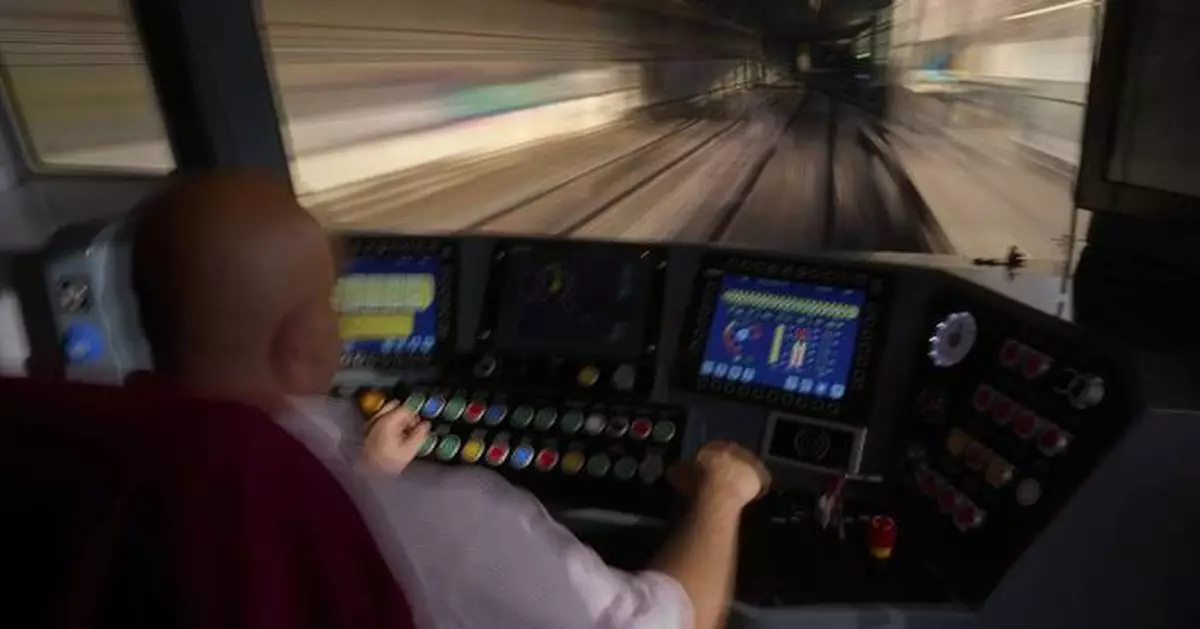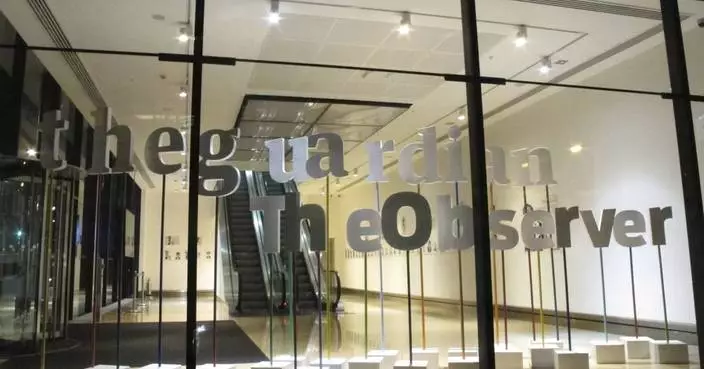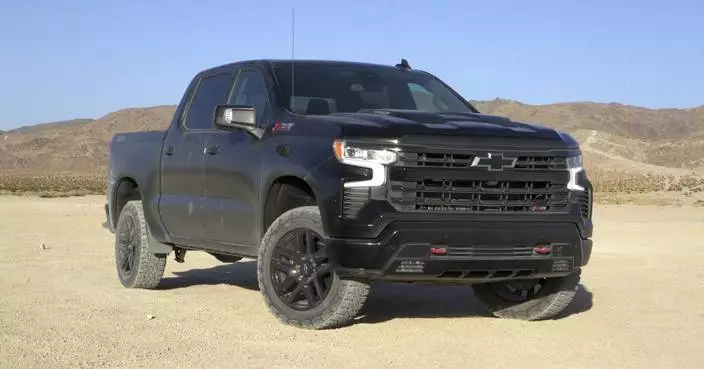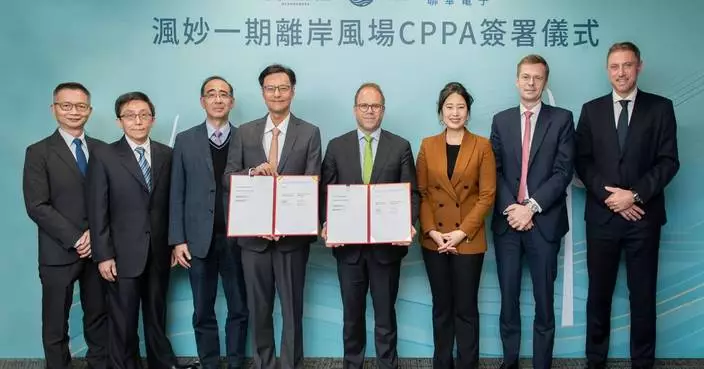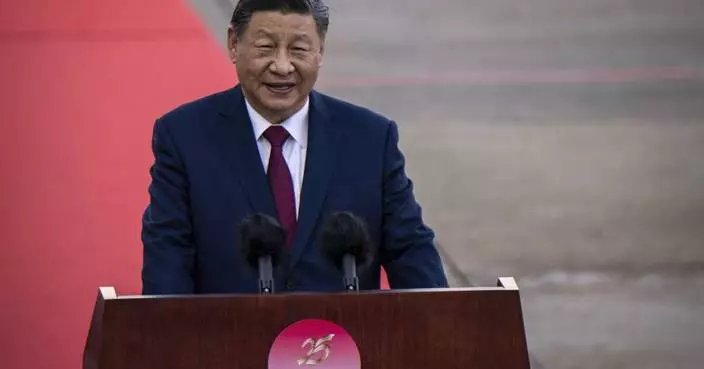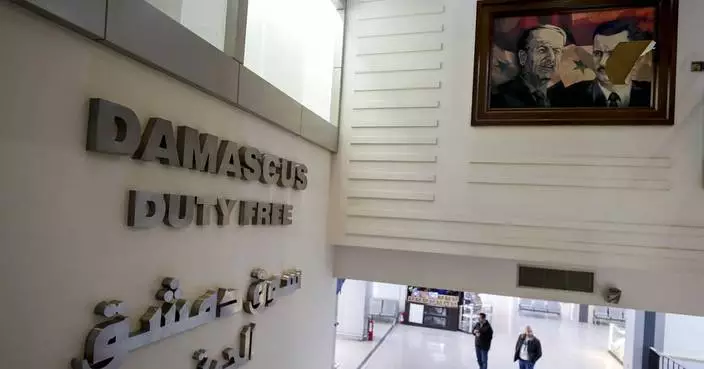BARCELONA, Spain (AP) — The Barcelona subway grinds to a halt, the doors slide open and commuters pour out to go about their daily business.
Little do they know that as they do so, a burst of energy is sent up to street level to help charge an electric car.
Barcelona has put together a package of clean energy technologies to help public transportation go greener, while also doing its part to combat climate change and aid Europe's difficult shift to the privately owned electric vehicle market.
Sixteen stations of Barcelona’s subway system are part of its new MetroCharge project, whereby the energy from the underground trains' brakes is used to power the trains and the stations themselves, while the remainder is sent snaking through cables to the surface to power plug-in stations for privately owned vehicles.
Bernardo Espinoza, a 49-year-old engineer, commutes daily by subway. He also owns a hybrid car and had just found out that he had a new place to plug in.
“I am pleasantly surprised, because I have an electric car and am always looking for where to plug it in,” Espinoza said before catching the subway in a working-class area of southern Barcelona. “And if it is from energy from the metro’s brakes, then even better.”
Regenerative brakes have been in trains for decades and are also used in some cars. They consist of an electric motor which captures energy used in the braking action that would be lost as heat by conventional brakes. That energy can be immediately used to accelerate the vehicle or, in the case of the Barcelona subway system, sent along cables to supply electricity for the station or for electric car chargers.
Alvaro Luna, professor of electrical engineering at the Polytechnical University of Catalonia, said that the system is innovative in so far as it allows for recycled energy to be redirected to specific local uses — in this case powering electric cars parked nearby. That, he says, boosts efficiency.
“Since the recharging stations are installed nearby, the energy, instead of being put back into the general electric network, goes directly to the charging stations, and that allows the provider to potentially offer lower prices,” Luna said. “We can say that the innovation is one of urban planning, of being able to bring together energy uses within a city.”
Making better use of energy has become a key pillar of reducing rising global temperatures. Last year, countries at U.N. climate talks and the members of the Group of 20 industrialized and emerging-market nations agreed to double energy efficiency by 2030.
Jordi Picas, head of systems for TMB, Barcelona’s subway, said that the public company estimates that it can recover the 7.3 million euros ($7.6 million) spent on MetroCharge, which includes European Union funding, in four years thanks to reduced energy costs.
The system, which also includes solar panels, provides all the energy needs of 28 of the 163 subway stations, from the lights to the elevators and ventilation systems, and saves 6% of the total energy spent by the metro, according to Picas. An average of 2.3 million people take the Barcelona metro on any given workday.
This clever program comes while doubts are emerging about the speed and cost of the EU's green transition as the 27-member bloc seeks to eliminate combustion engines and remain a world leader in standards for environmental protection.
Spain, like other Mediterranean countries, is feeling the burn of climate change, experts say, with the frequency of prolonged droughts and extreme weather events like the recent devastating floods in Valencia set to increase over the coming years.
In 2021, Spain’s government rolled out an ambitious electric car plan backed by the EU’s post-pandemic transition funds. The public incentives have succeeded in encouraging private investment like last week’s announcement by Chinese battery maker CATL and carmaker Stellantis to build a lithium battery factory in Zaragoza. The plan also included help for consumers.
But Spain hasn't been immune to the stumbles in the industry across Europe as the EU moves toward tariffs on Chinese EVs to try to help continental carmakers catch up.
Spain, with its wide expanses for a Western European country, faces the extra challenge of deploying recharging stations. Spain has 37,000 charging points, below the goal of 100,000 the government had set for now in 2021, according to ANFAC, the Spanish Association of Automobile and Truck Manufacturers.
So while the Barcelona subway concept can help chart a course for urban planners, there is still a lot of work to do.
Ángel García said that he agreed with the spirt of the initiative while plugging his hybrid taxi into a charging point fed by the Barcelona subway.
But he also said that the government should do more to help shoppers buy electric cars because “people don’t really go for electric cars here."
Hernán Muñoz contributed to this report.
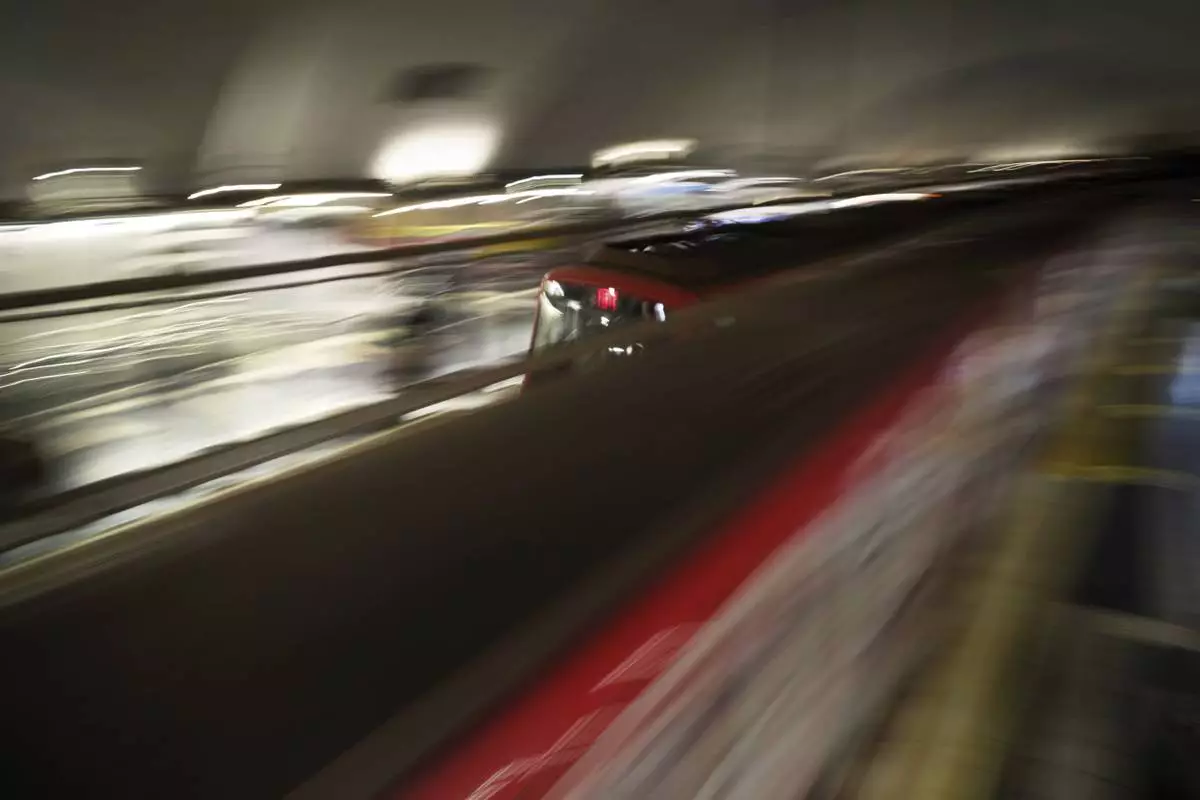
Metro trains come and go picking up and dropping off passengers at a Barcelona metro station Spain, Monday, Dec. 2, 2024. (AP Photo/Emilio Morenatti)
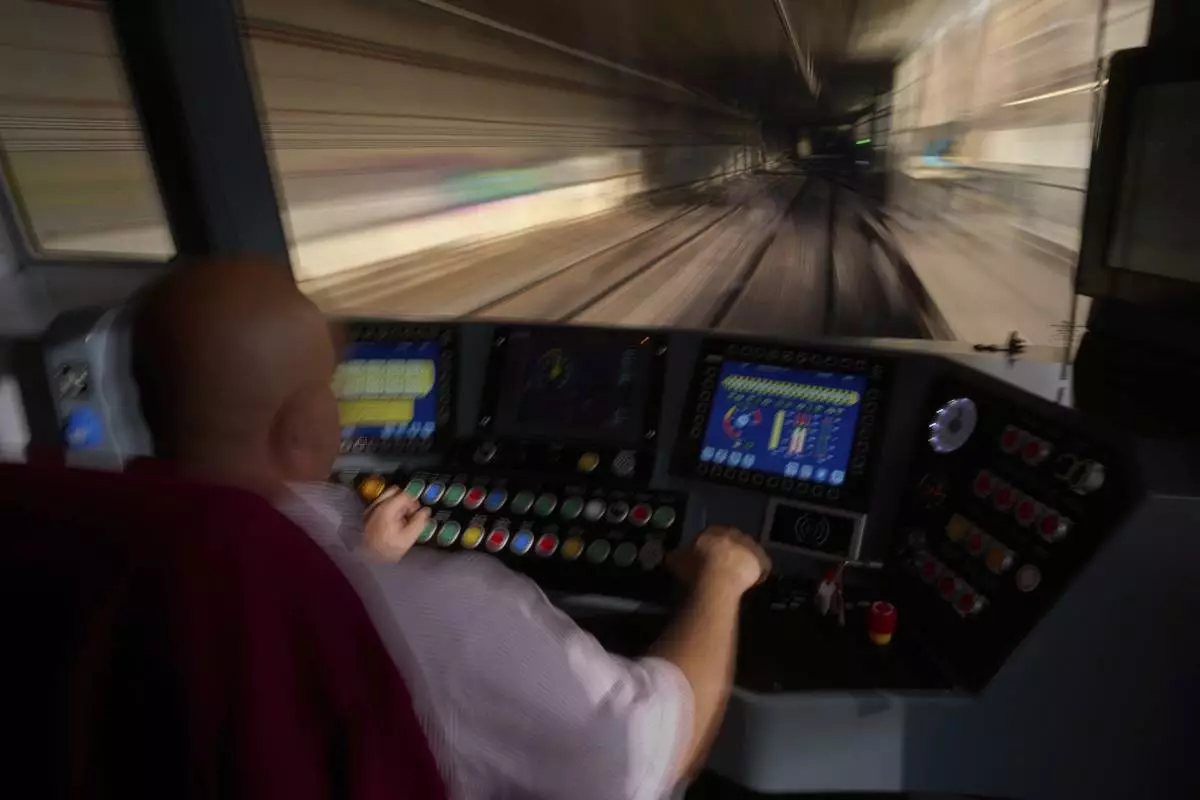
A subway driver operates the train's brake lever before entering a station in Barcelona, Spain, Monday, Dec. 2, 2024. (AP Photo/Emilio Morenatti)


